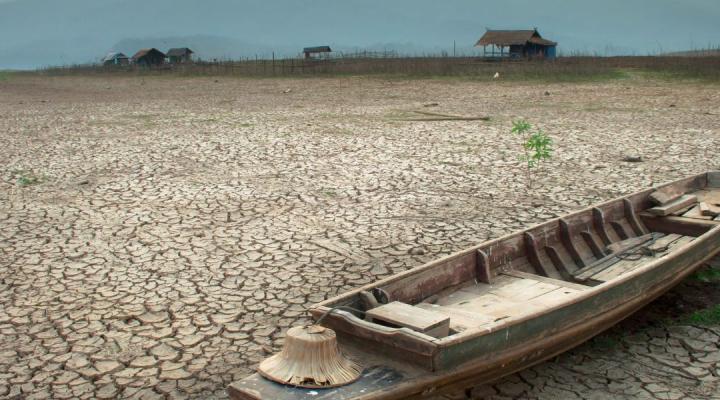By Dr Yubin Park, Chief Data & Analytics Officer, at ApolloMed in Alhambra, California, USA. Yubin is a judge on the Burjeel Holdings Oxford Saïd Climate Change Challenge and has provided this blog reflecting on the challenges arising from climate change for healthcare providers.
Every summer feels hotter than before these days, and this year was no exception. My wife and I become so worried when our kids play outside about whether they will get dehydrated or suffer from heat stroke. Seeing it will only get worse in the foreseeable future is so disheartening.


Extreme heat events have become more and more frequent and longer every day. According to the daily monitoring page on The Washington Post, on 26 August 2023, 89 million people in the US were in dangerous heat - you can see the heat index on that day in this map from The Washington Post Heat Index. According to the forecast, the numbers will only grow. [i]
Under these extreme heat waves, we should remember that many people work under the sun for their living, eg farmers, construction workers, and other service workers. Even people with multiple chronic conditions would need to venture outside and take public transport to see their doctors. Extreme climate events affect healthcare access, quality of care, and even clinical conditions. Furthermore, the adverse effects are disproportionately more extensive in underserved communities. [ii]

All these surrounding events made me think of this commentary piece on Health Affairs, 'Adding A Climate Lens To Health Policy In the United States' [iii]. The article discusses a broader scope of health policy and urges policymakers to integrate a climate lens into policy designs. I didn't quite realise it when I first read it in 2020, but as I re-read the article a few weeks ago, I found a lot of similarities between value-based care and climate-related interventions. In short, both need to focus on ‘long-term’ gains and ‘preventative measures’. For that, the drive needs to come from the top.
It is time for the US Centers for Medicare & Medicaid Services and other countries' governments to put a climate lens on their healthcare payment models. For example:
- We need a programme that incentivises providers to 'proactively' act on extreme weather events, such as sending alert text messages or virtual check-ins with weather forecasts. Practically, we can also think of embedding such incentives in the existing value-based care frameworks, such as Accountable Care Organizations in the US, Accountable Care Systems in the UK, and Gesundes Kinzigtal in Germany.
- We should re-think the value of Telehealth and Remote Patient Monitoring from a climate lens, specifically the decarbonisation perspective. Patients can save on gas (petrol) and won't get affected by extreme heat or cold. These are the hidden efficacies of these programmes.
- We need to consider the disproportionate impacts of extreme weather events on different communities and provide appropriate funds to protect vulnerable communities from such weather events.
These are some ideas off the top of my head. We have a late start on this effort, but we have this saying: better late than never. Let's start actively discussing this right now.
Background references
[i] The Washington Post Heat Index tracker
[ii] Adding A Climate Lens To Health Policy In The United States by Renee N. Salas, Tynan H. Friend, Aaron Bernstein, and Ashish K. Jha
[iii] Climate change is killing Americans. Health departments aren’t equipped to respond by by Dean Russell, Elisabeth Gawthrop, Veronica Penney, Ali Raj and Bridget Hickey
Many thanks to Yubin and the rest of the panel of international judges who are giving their time and expertise to review entries for our Climate Change Challenge. It is a global competition for high school students (aged 15 to 18) and teachers which Burjeel Holdings and Saïd Business School launched in the summer of 2023 ahead of COP28.
The challenge invited young people and educators across the world to contribute their ideas and take action towards creating solutions to the greatest and most complex threat to humanity: the climate crisis. The winners were announced at COP28, the UN Climate Conference, in Dubai on 2 December.




